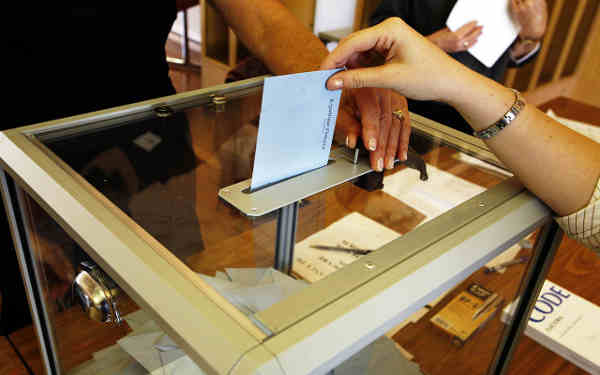The Supreme Court directed the Government of India today, 12 January 2015, to allow e-Voting by the Non-resident Indians (NRIs) at Indian elections within 8 weeks. The Supreme Court also directed the Central Government to inform within four weeks the steps taken to implement the suggestions given by the Election Commission in this regard.

It is noteworthy that Section 20-A of the Representation of the People Act, 1950, lays down special provisions for voting by citizens of India who are residing outside India. This provision is reproduced below:
“20-A. Special provisions for citizens of India residing outside India.—(1) Notwithstanding anything contained in this Act, every citizen of India,—
(a) whose name is not included in the electoral roll;
(b) who has not acquired the citizenship of any other country; and
(c) who is absenting from his place of ordinary residence in India owing to his employment, education or otherwise outside India (whether temporarily or not),
shall be entitled to have his name registered in the electoral roll in the constituency in which his place of residence in India as mentioned in his passport is located.
(2) The time within which the name of persons referred to in sub-section (1) shall be registered in the electoral roll and the manner and procedure for registering of a person in the electoral roll under sub-section (1) shall be such as may be prescribed.
(3) Every person registered under this section shall, if otherwise eligible to exercise his franchise, be allowed to vote at an election in the constituency.”
Thus, a non-resident Indian is allowed to register as a voter and vote during the Parliamentary and Assembly elections in India, provided he himself remains available for voting at the time of the election.
Three writ petitions have been filed in the Supreme Court in view of the difficulties experienced because of this provision. These writ petitions have been filed by Pravasi Bharat chairman Nagender Chindam, Naresh Kumar Hanchate, and Shamsheer V.P, respectively. The NRIs, who are not ordinarily resident in India but who continue to be citizens of India in view of the fact that they have not obtained citizenship of any other country, are not able to exercise their voting rights as most of them are not in a position to remain present in their constituency in India at the time of the elections. On the other hand, there are certain categories of voters, such as defence personnel, who are allowed voting through postal ballot etc. In view of these reasons, NRIs have been demanding the right to vote through electronic means so that even without visiting the constituency (in which they are registered as voters) at the time of the elections, they could exercise their right to vote as citizens of India.
A committee consisting of officials from the Election Commission, Law Ministry and the Ministry of External Affairs had examined this issue and had taken the opinions from various people. This committee has submitted a report to the Supreme Court.
It is understood that the options of (1) voting through proxy appointed by NRIs electors as well as (2) “e-postal ballot, where blank postal ballot paper is transferred electronically to the NRI and returned by post” have been found to be appropriate to allow voting by the NRIs without remaining present in the constituency at the time of the elections.
However, it is learnt that the possibility of allowing NRIs to vote through the Internet or at diplomatic missions abroad has been ruled out for the time being. According to reports, the Ministry of External Affairs is not in favour of the idea of allowing NRIs to vote at embassies in view of practical difficulties of a large number of NRIs residing in certain countries due to which it would be difficult to hold such an exercise at the embassy.
At the time of hearing on 12 January 2015, the Government of India informed the Supreme Court that it has accepted the suggestion of the Election Commission to extend voting rights to NRIs through postal ballots. Additional Solicitor General of India Shri P.L. Narasimha, who appeared on behalf of the Union of India, informed the court that certain amendments are required to be carried out and the ministry of law is working on them in view of the recommendations of the Election Commission. In view of the submissions, a bench of the Supreme Court comprising of Chief Justice H.L. Dattu and Justice A.K. Sikri, has directed the Government to inform the court about further steps taken to implement the suggestions of the Election Commission. These three writ petitions will now be listed in the Supreme Court for further hearing after eight weeks.
It is pertinent to note that the present Central Government is sympathetic to the cause of the NRIs. In fact, recently, the President of India promulgated an ordinance to amend the Citizenship Act to merge Person of Indian Origin (PIO) and Overseas Citizenship of India (OCI) schemes, by which PIOs will also get life-long Indian visa. The very fact that the Government decided to promulgate an ordinance to this effect, instead of waiting for the Parliament to pass an Amendment Act, shows the keen interest taken by the present Government in resolving the difficulties being faced by the NRIs.
Accordingly, it is hoped that, in near future some practical solution would be found to enable the NRIs electors to cast their votes through e-Postal ballots or through proxies.

